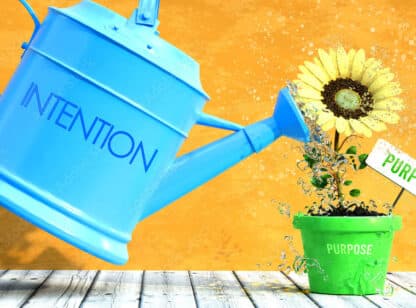Your ability to survive the all-consuming role of caregiver /partner for those with memory loss will depend on many things, but expanded knowledge and acceptance are paramount.
Knowledge. Know thy enemy. The National Institutes of Health (NIH) states that there are 85-90 different types of dementias. Alzheimer’s represents some 70% of the diagnoses followed by vascular dementia, Parkinson’s, Lewy body dementia (LBD), frontotemporal lobar dementia (FTLD), and more. And sadly, misdiagnosis can happen. So, do your homework; be the lead detective and top advocate for accurate information about your loved one’s condition. Learn everything you can about the disease: range of symptoms, characteristics, behaviors, beneficial medications, and treatment options. Find the national association dedicated to your loved one’s dementia. You will help yourself enormously by understanding the why’s and how’s of it all.
Acceptance. Abandon denial and accept reality. Replacing your anger and fear with love and acceptance is fundamental for your own well-being. No one wants a diagnosis of cancer, a dementia-related disease, or any number of debilitating conditions for someone they love; however, denial isn’t an effective strategy for you or your family as it limits your ability to properly support and aid your loved one and yourself.
Be honest and accept that you can’t hit the rewind button to recapture the parts of the person you are watching slip away. You can’t continue toward the future you both had planned. It’s ugly, maddening, frustrating, cruel, hateful, and you have every reason to feel this way.
In time, your loved one will have less stress, while your stress levels bump to dangerous levels. You’re juggling the responsibilities you used to share and trying to cope with the new person that keeps showing up. The more push back we get from the disease, the harder we work trying to control it, and the greater the internalized pressure we feel. Whatever the health condition of your loved one, caregiving/partnering is hard work, physically, emotionally, mentally and beyond.
In the Caregivers Bill of Rights (yes, there really is one), a key tenet is to be yourself enough to have confidence that you are doing the best you are able to do within the circumstances presented.
Assistance. One of the best things you can do for yourself is join a support group. I know what you’re thinking; yes, there can be sadness and tears during the meetings; however, there is much more information, learning, and laughter than tears. In a well-facilitated support group, no one will scold you or judge you; people who understand everything you are living with and feeling will surround you. Nothing will be new to them. These men and women will be there for you and some will become your lifeline and earnest friends.
Your loved one has an incurable disease that impacts your entire family; you will all benefit tremendously if you take the steps now. Remember, your life matters, too.
Kae Hammond is founder and President of Dementia Help Center; author of Pathways: A Guidebook for Dementia & Alzheimer’s Family Caregivers and host of “Care for the Family Caregiver” on 95.9FM KJJZ every Sunday at 7AM. For more information, call (877) 699.3456 or visit www.dementiahelpcenter.com.













































Comments (0)